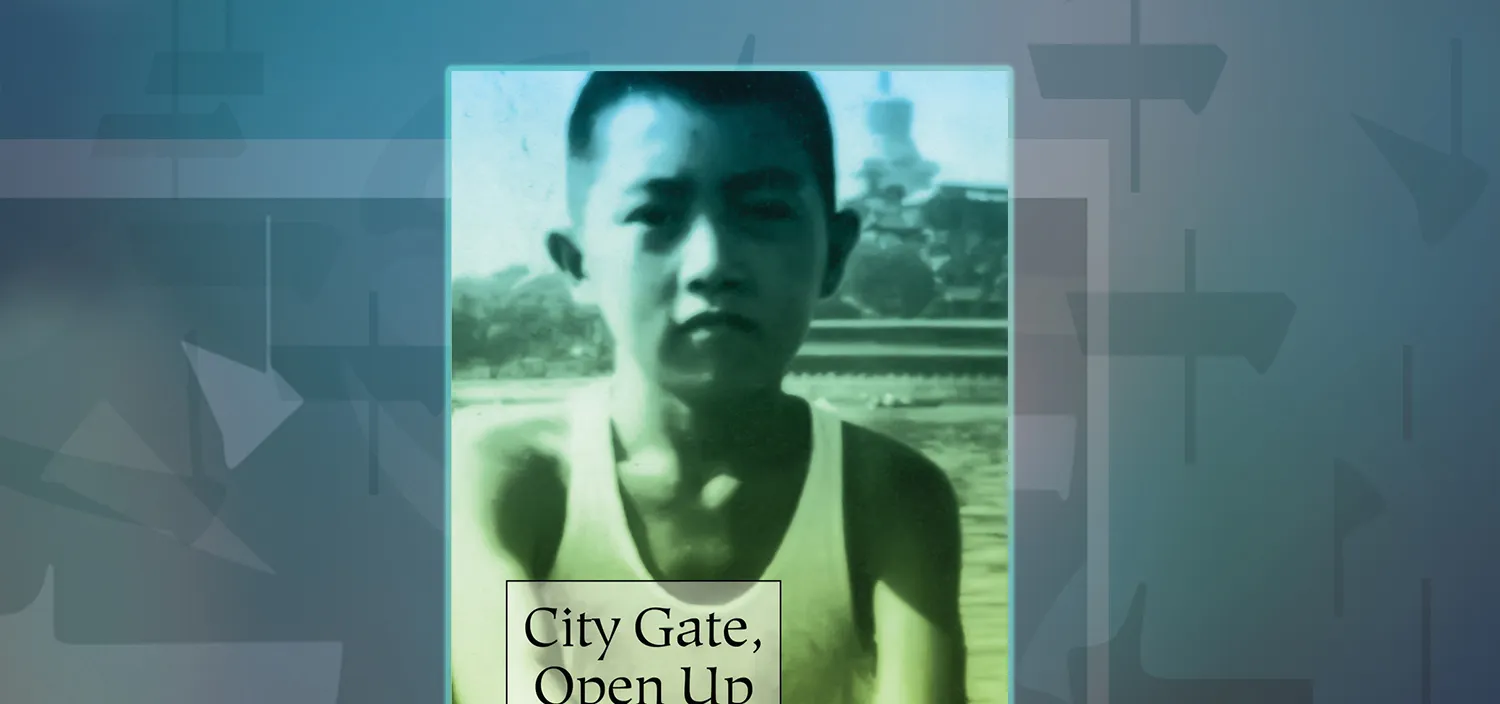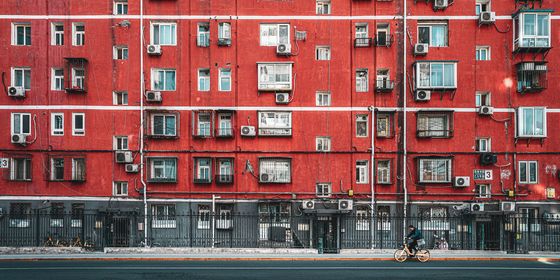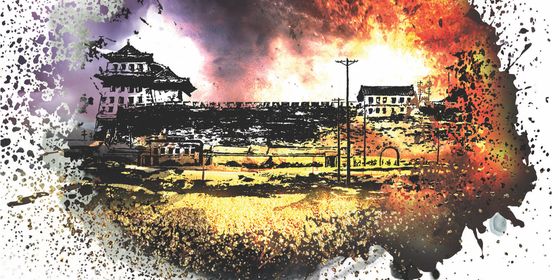In “City Gate, Open Up”, seminal poet Bei Dao memorializes a long-lost capital
Construction worker, underground publisher, and acclaimed poet, Zhao Zhenkai (赵振开) was born, in his own words, in 1949, “as Chairman Mao declared the birth of the People’s Republic of China from the rostrum in Tian’anmen Square…in [a] cradle no more than a thousand yards away.”
In the 1970s, he would accrue near-celebrity status for his pseudonymous poetry, which was wild and defiant—and unlike anything in circulation at the time. His fame brought enemies, however, and attacks by official censors. Zhao’s pen name, Bei Dao (北岛, “Northern Island”), reflected such conflicted feelings: love for his northern home, as well as desire to be free of others’ impositions.
In his youth, Bei Dao lived through political campaigns, a mass famine, and the Cultural Revolution. Although a principal figure in the “Cultural Fever” which gripped the country in the 1980s, Bei Dao left China along with many other intellectuals at the end of that decade. City Gate, Open Up offers a record of this earlier time and his return, 13 years later, to a city resurgent and remade—“a foreigner in my own hometown.”
Much of City Gate’s 18 essays, translated with little poetic license by Jeffrey Yang, are written in dreamlike vignettes: How his parents met, his schooling and home life, and his transition to adulthood. Along with the image of his ailing father, a recurring image is Beijing.
Walking through its hutong—the mostly demolished narrow brick-and-stone alleyways that stood for centuries—the essays offer a vision of street life both from a child’s unprejudiced view and an adult eye:
High officials, in fact, preferred a life of seclusion…the tenants around our grand courtyard were mostly lower-level cadres, and yet the big shots of the democratic parties imitated the ruling party by stealthily wandering the hutongs, sharing water through parched times, so that even if one were a sacked official, one could eat and drink as well as before, just like a last so-called aristocrat.
High officials, in fact, preferred a life of seclusion…the tenants around our grand courtyard were mostly lower-level cadres, and yet the big shots of the democratic parties imitated the ruling party by stealthily wandering the hutongs, sharing water through parched times, so that even if one were a sacked official, one could eat and drink as well as before, just like a last so-called aristocrat.
Bei Dao uses the language of political sloganeering (“sharing water through parched times”) to describe the complex motivations of others; For his own, he employs the city as a symbol:
From the abyss of the hutong alleys looking back toward our big building, I actually felt a vague hostility. This must have been related to a rebellious phase of adolescence: the multi-story complex stood for the authority and order of my father.
From the abyss of the hutong alleys looking back toward our big building, I actually felt a vague hostility. This must have been related to a rebellious phase of adolescence: the multi-story complex stood for the authority and order of my father.
Although those hutong are where everyone meets—vendors, passersby, and politicos—their buildings and spaces, as sites of social change, symbolize unpredictability as well as latent hostilities and fears, which come to the surface in passing references to the extremely violent Cultural Revolution.
Bei Dao went to the prestigious Beijing No. 4 School—China’s top secondary school then, as now—but education was in a state of virtual shutdown because of the political upheaval. Recalling how Red Guards roamed the grounds and fought, persecuting faculty members perceived as counter-revolutionary, the book shakes off its dreamlike pace and takes on a hard-nosed narrative style, as Bei Dao harshly observes others’ “utter lack of self-reflection, never pausing to examine their own conscience.”
Bei Dao’s principal was denounced and struggled against; exams were abolished, and parents sent to be “re-educated.” The poet himself spent the 70s being re-educated on a building site, where he played truant and wrote on the side, emerging at the end of that decade as publisher of an underground literary magazine Today, and founder of the Menglong poetry (朦胧诗, “misty poetry”) movement, characterized by its abstract, “un-Chinese” content and obscure from, like montage.
The Cultural Revolution era definitively ended with the arrest of the Gang of Four in 1976. On hearing the news, his father only looks at him. This kind of silent communication undergirds much of the book, such as one of the few passages where Bei Dao comments upon his poetry:
Spring Festival 1972, our whole family reunited in Beijing. I gave a draft of my poem “Hello, One Hundred Flowers Mountain” to my father to read. I didn’t foresee that he’d order me to burn it immediately, the line “Green sunbeams scatter and flee through the seams” really terrifying him. I could see the fear in his eyes, and with no other recourse, I obeyed his command. I decided right then to never show him another poem of mine again.
Spring Festival 1972, our whole family reunited in Beijing. I gave a draft of my poem “Hello, One Hundred Flowers Mountain” to my father to read. I didn’t foresee that he’d order me to burn it immediately, the line “Green sunbeams scatter and flee through the seams” really terrifying him. I could see the fear in his eyes, and with no other recourse, I obeyed his command. I decided right then to never show him another poem of mine again.
The same resignation returns when, long after relocating to the US, Bei Dao returns to visit his ill father. He writes about this period of hospital visitation as before: with passionate detachment. Although the trips awaken painful old feelings, serving as a spur to reclaim his lost city through this memoir, a residual impotence speaks to a more universal Chinese experience. In either case, there is little he can do but be there and observe—and write.
Goodbye, Beijing is a story from our issue, “Beyond Go.” To read the entire issue, become a subscriber and receive the full magazine.













